9 ways to help find inner peace in a hectic world

Radio 2 has been exploring the role of peace in a world of conflict and tension as part of Faith in the World Week 2018, looking at how communities can work together to achieve reconciliation and inclusion.
New documentary Keeping the Peace with Guvna B sees the rapper and MOBO Award winner ask what it takes to be a peacemaker in modern Britain (available on demand until 21 November), while Vanessa Feltz discusses empathy and forgiveness with Jo Berry, whose father - MP Sir Anthony Berry - was a victim of the 1984 Brighton bombing. Find the full Faith in the World Week schedule here.
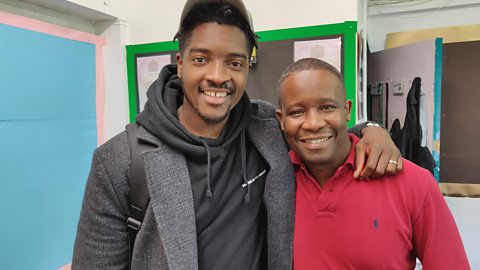
Adrian Burke
Guvna B speaks to Adrian Burke (AKA Witness)
But what steps can we each take to create the kind of inner peace that allows us to go out into the world with love and warmth? Here are recent Radio 2 guests with a few tips...
1. Take breaks from stressful environments

Why are we all so stressed?
Chris chats to neuro-ophthalmologist Mithu Storoni live from Hong Kong.
Stress is a common part of daily life and has been linked to damaging both our mental and physical health. The modern life contains an overload of information can lead to an excess of cortisol, the chemical released as part of the mind's 'fight or flight' response.
Neuro-ophthalmologist Dr. Mithu Storoni suggests that as the body becomes progressively out of sync with the rhythms of the natural world, that time spent away from stressful stimuli can prove hugely beneficial in developing peace of mind. "The world we live in at the moment is very different to the world we used to live in. In the past, we were very good at having short, sharp stress reactions that were not harmful, now there is an overload... it's all about bringing that balance back."
A good place to start might be to take regular breaks from your computer, the Internet and social media (the artificial light, Dr. Storoni says, is keeping us in a state of constant stress and alertness). Although, going cold turkey in terms of tech is not always easy, as Lily Allen explained to Jo Whiley and Simon Mayo:

Lily Allen: "The internet is damaging...but I can't do my job without it"
The pop star talks us through highs and lows about life on the internet.
2. Focus on life's essentials
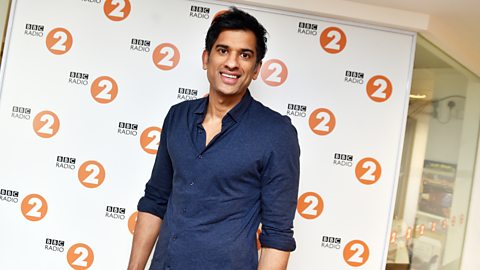
Dr Rangan Chatterjee: "Stress underpins so much of all the other choices that we make."
The doctor discusses his book, The 4 Pillar Plan.
Stress can be a cause of great anxiety, but focusing on life's essentials can help alienate some of this. Dr. Rangan Chatterjee spoke to Steve Wright about the 'four pillars' of wellbeing - sleep, food, relaxation and movement - each one dependent on keeping the impact of stress to a minimum.
Chatterjee's tips include regular exercise, a good night's sleep, taking the time to enjoy good food and taking a break from electronic devices. Each one is easy to overlook in the hustle and bustle of everyday life, but these can be key steps in maintaining a healthy emotional balance.
3. Know the difference between urgent and important
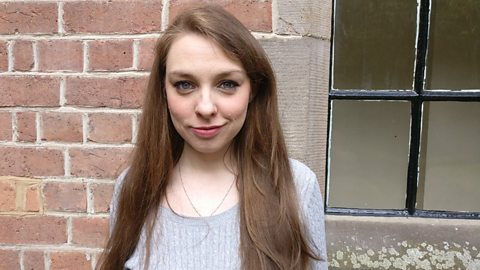
Pause For Thought: 'The things I think are urgent, rarely are.'
Madeleine Teahan on the importance of prioritising.
A major source of stress is a heavy workload and deadlines that appear impossible to meet. But while urgency and importance may seem like exactly the same thing, there's actually a big difference between them. Urgent tasks are short-term and often reactive, while important ones include our long-term goals.
Writer Madeleine Teahan emphasises the importance of prioritising intelligently, quoting former US President Dwight D. Eisenhower: "what is important is seldom urgent, and what is urgent is seldom important". So the next time you're juggling several things at once, it's worth having a think about which tasks need doing right away and which things are more important to you in the long run. This can help alleviate stress and help get things done.
4. Don't fear change...

Best selling author Matt Haig talks to Jill Halfpenny about the anxiety that comes with change
Matt tells us how technology and social media can affect our mental health
Change can be a frightening prospect, but it can also allow for things to advance in a positive way.
Author Matt Haig suggests that we should be prepared to accept the highs with the lows. "Change by its nature is unsettling, but the trouble is that life is change," he told Jill Halfpenny earlier this year. "There's nothing we can do about that - we will change. Accepting change is key to our survival."
Meanwhile, Pause For Thought regular Paul Oxley has spoken about the power that making even the smallest of changes can have:
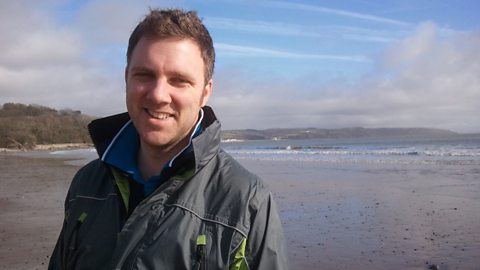
Pause For Thought: 'Choosing graciousness rather than hatred.'
Paul Oxley on the power of small changes.
5. Learn to forgive - yourself and others

Paris Lees: What Makes Us Human?
The transgender activist joins us to answer the question. She says forgiveness.
A key aspect of gaining inner peace can be coming to terms with one's past, which can allow for greater change in the future. Speaking to Jeremy Vine about what makes us human, journalist and transgender rights activist Paris Lees, in opening up about her relationship with her father, explained the importance of letting go of grudges.
"I've had to forgive myself if I'm going to break the cycle of shame and move forward to be a better person," Lee notes. "An unexpected side effect of this process is that, one night in the past few years, I lay in bed and empathised with my father for the first time in my life... I can't forgive myself and move on without forgiving him. I'd be a hypocrite."
6. Give love selflessly

Shappi Khorsandi: What Makes Us Human?
The comedian and author joins Amol to answer the question.
Joining Amol Rajan in the Radio 2 studio, comedian Shappi Khorsandi spoke about the great significance of unconditional love and how one's life can be enriched by giving and expecting nothing in return.
Unconditional love is most common in a family environment (Shappi recalls a tender moment as a child of her mother giving her the last piece from a chocolate bar), but it can also be as simple as making sure someone else knows you care. While it can help you find your own inner peace, it is an act that also helps another in their own personal journey.
7. Accept your own uniqueness
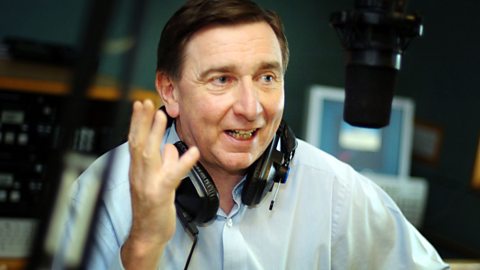
Pause For Thought: 'Today is a good time to be kind to yourself.'
Father Brian D’Arcy On self-acceptance.
As well as showing love to others, it's also important to learn to love ourselves. The standards we hold ourselves to can often be higher than that we expect of others, and father Brian D’Arcy thinks we should apply the same empathy we offer others to ourselves as well.
"Instead of running ourselves down, we should be learning to accept ourselves and others for what we are. We don't need to be judgemental about our own feelings and failings, simply learn to look in the mirror and say 'I accept you. I understand you. You're gorgeous. I care about you'. Accept your own uniqueness."
8. Take time to laugh
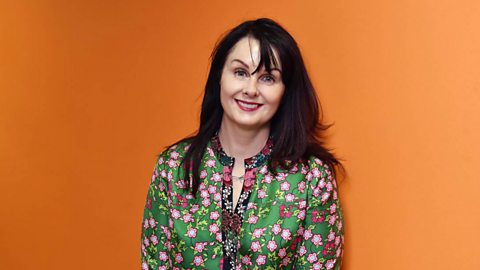
Marian Keyes: What Makes Us Human?
The hugely successful novelist says it is laughter that makes us human.
Despite the hectic nature of the modern world, it's important to take some time out to enjoy the lighter side of life.
Novelist Marian Keyes speaks wonderfully about the restorative effects of laughter, particularly in a time of crisis. "One of the things that makes us human is that we use laughter as a survival mechanism. And it seems that there are actual physiological reasons," Keyes points out. "Laughter triggers the release of endorphins - the body's natural feel-good chemicals - they give an overall sense of wellbeing and apparently can even relieve pain temporarily... a good hearty laugh relieves muscle tension."
So when tension and anxiety are weighing you down, try to find a moment to be among people who can help lift a burden with a joke or two. Comedian Robert Webb agrees, explaining how a sense of humour is part of what makes us human:
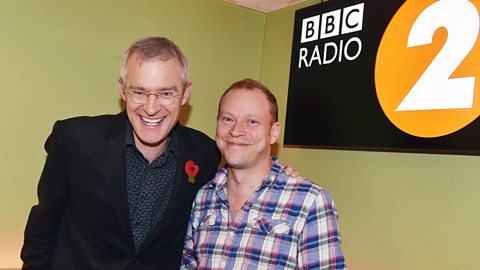
Robert Webb: What Makes Us Human?
The comedian and author joins us to answer the question: 'What Makes Us Human?'.
9. Finally, don't lose hope

Pause For Thought: "Failure is only the end if you decide to stop."
Reverend Tony Miles on holding on to hope.
It's often said that you have to fail in order to succeed, but failure can also be an emotionally bruising experience that's hard to cope with. One key way of turning failure into success, Reverend Tony Miles argues, is never giving up hope. Once you learn, make peace with your shortcomings and move forward, he argues, that's when you can really start to turn things around.
Miles uses England manager Gareth Southgate as a prime example: "Who would have thought that Gareth Southgate would become a blessing in disguise? The Euro 96 penalty misser, once vilified and mocked as a failure, has now led England to become the waistcoated saint. His past experience, passion and cool head turned into fortune."
So, whenever in doubt, just think of Gareth Southgate.
Like us on Facebook, on Instagram at bbcradio2, or follow us on Twitter @BBCRadio2
Listen to Radio 2 on BBC Sounds, or find out other ways you can listen.













